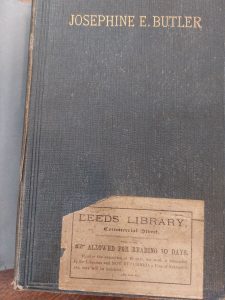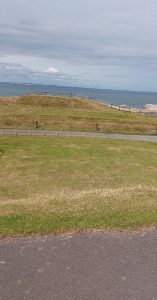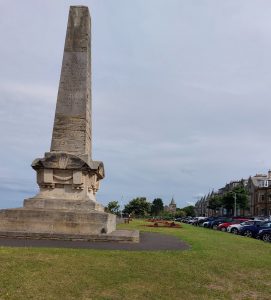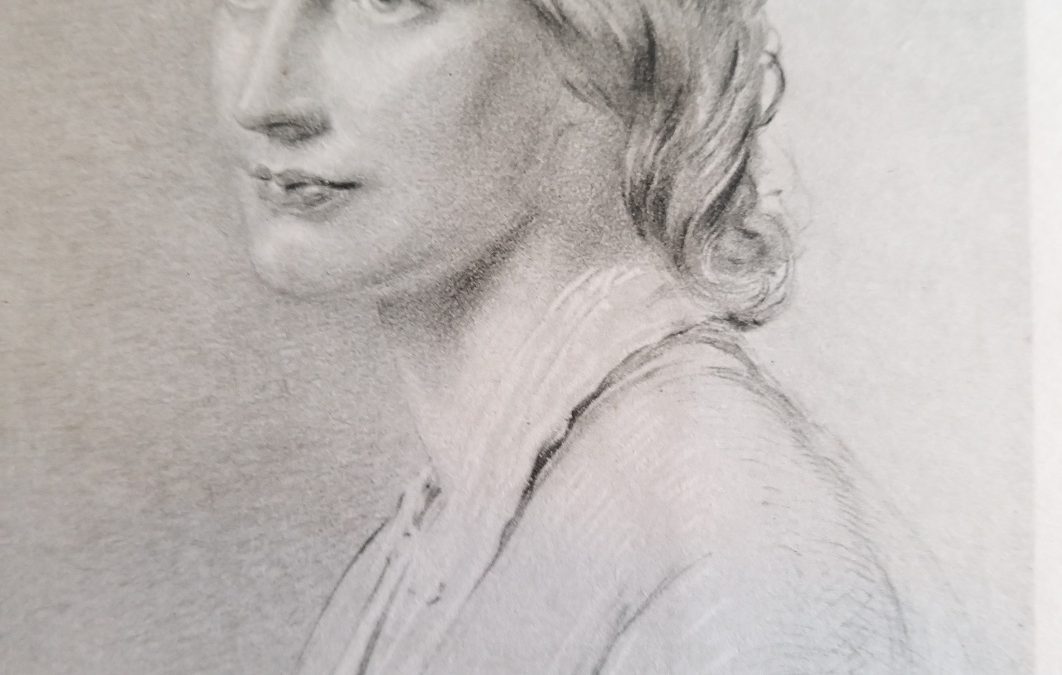Charismatic, passionate and dedicated to the cause of social justice, Josephine Butler was a significant campaigner for women’s rights in the 19th century. Elizabeth Wolstenholme Elmy and Josephine worked together on several important campaigns. Here we will look at her life, her influence and her ongoing impact today.
Young life
Josephine was born to a wealthy family in Northumberland in 1828, the fourth daughter of John Grey and Hannah Annett.
Like Elizabeth, Josephine had strong connections to the Moravian Church. Her mother, Hannah, was a Moravian descended from the Huguenots. As a young woman Hannah had been taught the piano by Christian Ignatius La Trobe.
Christian Ignatius La Trobe, a member of the famous Moravian family[1], spent most of his adult life in London and was friends with anti-slavery campaigner, William Wilberforce.
The principles of fighting for people’s rights were then passed on to Josephine and her siblings; Hannah also passed on her love of the piano to Josephine, who became a talented pianist. Both parents often involved them in discussions about the wrongs of slavery.
From an early age Josephine was acutely aware of the cruelty to women and their complete lack of legal rights. At an early age she wrote:
‘the world [is] out of joint … some of the saddest miseries of earth, the injustices, the inequalities, the cruelties practised by man on man, by man on women.’[2]
Fights for social justice
Josephine became an early Victorian feminist who particularly contributed to changes in education & employment for women. She also worked in this country and abroad challenging laws that severely punished women suspected of being prostitutes.[3]
Her influence 100 years on
The introduction to her memoir, written by James Stuart, states that:
‘we must be glad she lived. We are each individually better, and the world as a whole is better, because she lived; and the seed that she has sown can never die.’
The seed she sowed is being carried forward today in many ways. The Josephine Butler Society is one example of her influence.
Their website states that ‘the Josephine Butler Society is a pressure group, founded in Josephine Butler’s name to campaign and advocate for the safety of sex workers. We stand for Social Justice and Equality of all citizens before the law.’ https://www.josephinebutlersociety.org/archive
They build on her work; for example, they are currently campaigning about the potential impact of the Online Safety Bill on sex workers.
A memoir

Memoir of Josephine Butler
Thanks to The Leeds Library, I have access to a memoir of Josephine published in 1909, three years after her death; this memoir draws heavily upon her own extensive writings. Over the coming months, I will share material from this wonderful resource.
Above I have quoted from the introduction to this memoir. Interestingly, the introduction was written by James Stuart: I asked myself, who is he? How come he writes the introduction? The answer links to the personal note below.
Not only was he a professor at St Andrews University but at the time Josephine was campaigning, with Elizabeth, for women to enter higher education he was writing about this topic. So, shared interests and probably both loved the Fife coast in Scotland.
A personal note – ‘Chariots of Fire’
In 1852 Josephine married George Butler and they had four children. One son, Arthur Stanley Butler, became a Professor of Natural Philosophy at the University of St Andrews. He lived with his family on The Scores, a delightful road between the University and the golf courses, looking out to sea. Josephine’s grandchildren recall her visiting them on numerous occasions.
It is the beautiful beach at St Andrews that was used in the Chariots of Fire film.
As I have recently visited St Andrews, I can offer two pictures taken on Scores Road showing views today that would be recognised by Josephine.

St Andrews

Scores Road, St Andrews
Next time
I hope this has offered you an introduction to this amazing woman. Next time, we can look at her work in more in detail.
As always, it is good to hear your comments, so please get in touch. If you know anyone who organises speakers for groups please pass them my details; all money raised from talks and book sales goes to charity.
[1] Christian’s brother Benjamin La Trobe designed part of the White House in Washington and helped establish the water system for Philadelphia.
[2] ‘Josephine E. Butler: an autobiographical memoir.’ Published in 1909: the authors drew heavily upon her own writing.
[3] The term is used here in its historical context.


Recent Comments